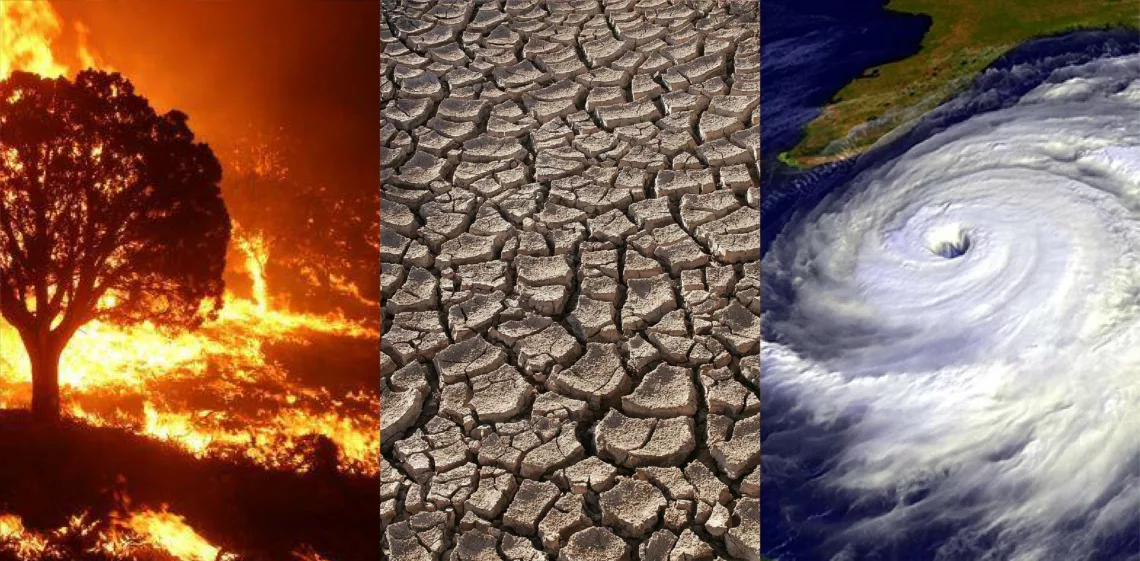The relentless march of climate change continues to exact a heavy toll globally, and Nigeria remains firmly in its grip. Climate change, intricately entwined with the depletion of the ozone layer, exposes our nation to escalating environmental peril. The emission of greenhouse gases, stemming from both anthropogenic and natural sources, steadily erodes this protective shield, leaving our communities vulnerable to the sun’s relentless onslaught. Notable among these culprits are carbon monoxide, sulfur dioxide, and chlorofluorocarbons (CFCs), each amplifying the specter of environmental catastrophe.
The impact of climate change on Nigeria’s agricultural sector, encompassing fisheries and forestry, is particularly pronounced. Recurrent seasons of drought and catastrophic flooding disrupt vital agricultural activities, precipitating mass displacement and rendering homes uninhabitable. Alarmingly, in 2019 alone, the National Emergency Management Agency documented the displacement of approximately 1.9 million Nigerians due to devastating floods.
Moreover, climate vagaries precipitate a disruptive redistribution of crops across Nigeria. Regions reliant on rainfall for agricultural sustenance, predominantly in the south, contend with deluges that stifle crop growth. Conversely, protracted droughts in the north desiccate once-fertile lands, imperiling crop yields and exacerbating food insecurity nationwide.
The livestock industry bears the brunt of climatic irregularities, as grazing lands succumb to environmental degradation while pest proliferation threatens animal welfare. This dual assault undermines the economic viability of livestock farming, imperiling the livelihoods of countless Nigerians dependent on this sector.
Climate change compounds existing health challenges in Nigeria, notably exacerbating the scourge of malaria. Pools of stagnant water, a byproduct of climate-induced flooding, burgeon into breeding grounds for disease vectors, intensifying the burden of malaria—particularly among vulnerable demographics. Concurrently, climate-related events, such as wildfires and dust storms, escalate respiratory ailments, further straining an already overburdened healthcare system and precipitating avoidable fatalities.
While the lion’s share of culpability for climate change rests with industrialised nations, individual responsibility transcends borders. Every global citizen, including Nigerians, must embrace their role in mitigating climate peril. Curtailing deforestation emerges as a pivotal strategy, as forests serve as invaluable carbon sinks, mitigating the deleterious impact of greenhouse gas emissions.
Confronting the multifaceted challenges posed by climate change demands concerted action at both national and grassroots levels:
The federal government must earmark substantial resources for agricultural research, fostering the development of climate-resilient crops to safeguard food security.
Rigorous enforcement of climate change legislation, particularly about industrial emissions, is imperative. Petroleum conglomerates operating in the ecologically sensitive Niger Delta region must be held accountable for their environmental footprint.
Collaborative inter-ministerial efforts, grounded in empirical data and environmental imperatives, are essential to formulate and implement effective climate policies.
Nationwide media campaigns should educate Nigerians on the ecological ramifications of their actions, cultivating a pervasive ethos of sustainability and environmental stewardship.
Climate change stands as an existential threat to Nigeria’s economic prosperity and societal well-being. Only through decisive action, rooted in collective resolve, can we hope to navigate the treacherous waters ahead and safeguard our nation’s future against the ravages of climate upheaval.





